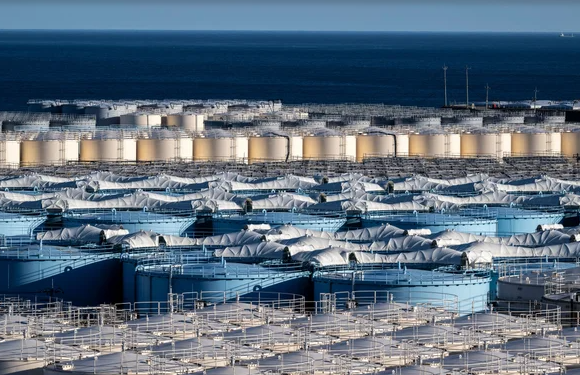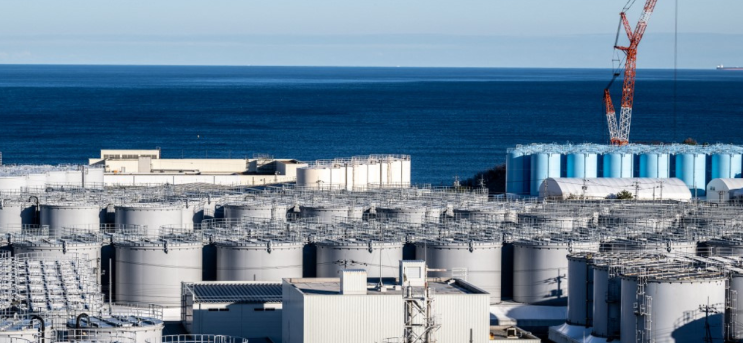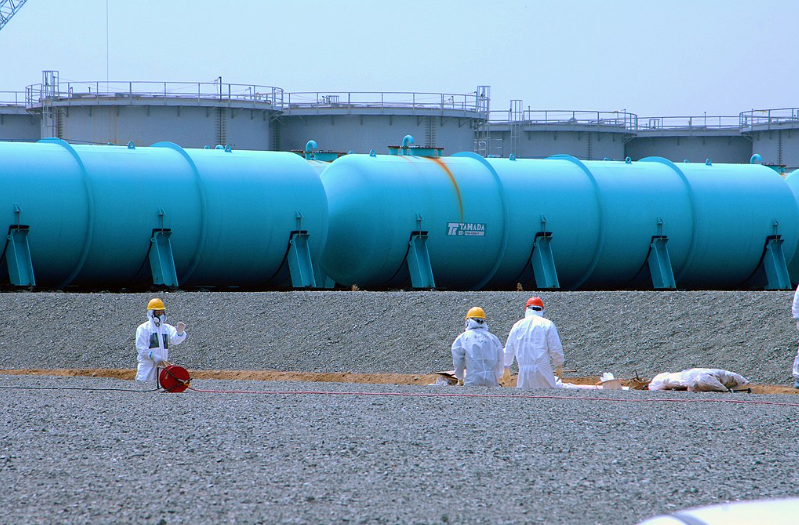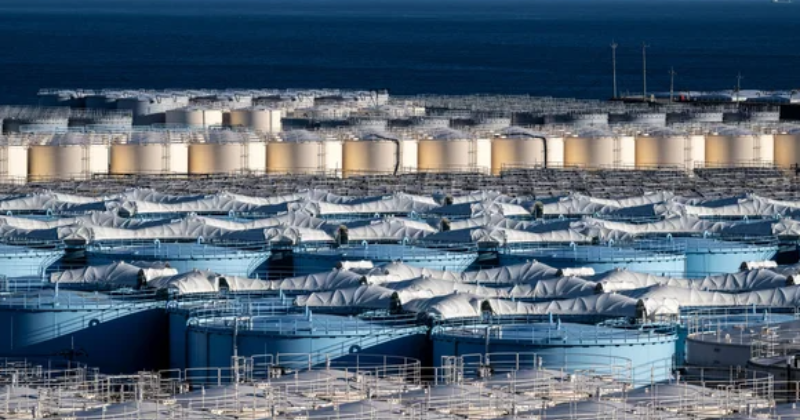Japan is prepared to dump treated water from the Fukushima Daiichi Nuclear Power Plant into the Pacific Ocean within the next 48 hours, that is, on Thursday, in a highly contentious decision.
This judgement marks a watershed moment in the lengthy and hard process of dealing with the fallout from one of the world’s greatest nuclear tragedies. The plan has triggered heated arguments at home and abroad, raising concerns about environmental effects, safety, and transparency.
The decision comes just weeks after the UN’s nuclear watchdog approved the plan. Since the 2011 tsunami devastated the facility, 1.34 million tonnes of water have accumulated, and it’s enough to fill 500 Olympic-size pools.
After being filtered and diluted, the water will be released over 30 years. Authorities will recommend that the plant’s operator “promptly prepare” for disposal on August 24 if weather and sea conditions are suitable, Japan’s Prime Minister Fumio Kishida said at a Cabinet meeting on Tuesday.
Mr Kishida had visited the plant on Sunday, fueling anticipation that the release was on the horizon
Jump To
- Japan Will Release Treated Water In 48 Hours From Fukushima
- Fukushima nuclear disaster
- Impact On The Environment
Japan Will Release Treated Water In 48 Hours From Fukushima
 Credit: AFP
Credit: AFP
According to the government, releasing the water is an essential step in the lengthy and costly process of decommissioning the plant, located on the country’s east coast, roughly 220 kilometres (137 miles) northeast of Tokyo. Japan has collected and stored toxic water in tanks for more than a decade, but room is running scarce.
Fukushima nuclear disaster
The Fukushima Daiichi Nuclear Power Plant on Japan’s northeast coast experienced a catastrophic meltdown in 2011 due to a severe 9.0 earthquake and tsunami. The incident resulted in the leakage of radioactive materials and the need for ongoing water cooling of the damaged reactor cores. The disaster is often recognized as the worst nuclear disaster after Chornobyl. Shortly after, officials established an exclusion zone, which gradually increased as radiation spilt from the facility, forcing almost 150,000 people to flee.
The plant’s operator, Tokyo Electric Power Company Holdings (TEPCO) has accumulated almost a million metric tonnes of contaminated water over the last decade.
Since the Japanese government approved the plan to release water from the plant two years ago, it has raised concern throughout Asia and the Pacific. The UN’s nuclear watchdog approved it in July, with authorities deciding that the impact on people and the environment would be minor.
However, many people in the region, notably fishermen, are concerned that discharging the cleaned water may harm their livelihoods.
 Credit: AFP
Credit: AFP
On Tuesday, a mass of demonstrators gathered outside the official prime minister’s residence in Tokyo, pressing the administration to halt the publication.
Operators of industrial plants Tepco have been filtering the water to remove more than 60 radioactive compounds. However, the water will still contain tritium and carbon-14- radioactive hydrogen and carbon isotopes that cannot be easily removed from the water.
However, because they emit very low radiation levels, experts believe they are not dangerous unless taken in huge numbers. Tokyo has previously said that the water dumped into the Pacific Ocean contains tritium and carbon 14 levels that surpass safety regulations.
Nuclear power facilities worldwide routinely emit wastewater with tritium levels higher than the treated water from Fukushima. However, the idea has sparked outrage among nearby countries, with China being the most outspoken opponent.
 Credit: AFP
Credit: AFP
Japan was accused of treating the ocean as its “private sewer.” In response to the statement on Tuesday, Hong Kong announced it would “immediately activate” import restrictions on certain Japanese food products.
South Korea and China have already prohibited fish imports from the Fukushima area. On the other hand, the South Korean administration has backed the idea and accused demonstrators of scaremongering.
Impact On The Environment
Japan has committed to stringent post-release monitoring and testing to guarantee that tritium levels remain within acceptable limits. They have also committed to compensate the fishing industry for any potential damage.
The world is waiting with bated breath as Japan prepares to discharge treated water from the Fukushima Daiichi Nuclear Power Plant. This contentious choice, which has both environmental and political ramifications, highlights the difficulties in dealing with the long-term consequences of a nuclear disaster.
It also serves as a reminder of the difficult and often unbearable decisions that must be taken in the aftermath of such disasters. The next few days will be critical in establishing the impact of this discharge and whether it can pave the way for a more secure and sustainable future for Fukushima and its neighbouring areas.
What do you think about it? Do let us know in the comments.
For more trending stories, follow us on Telegram.
Categories: Trending
Source: vtt.edu.vn
